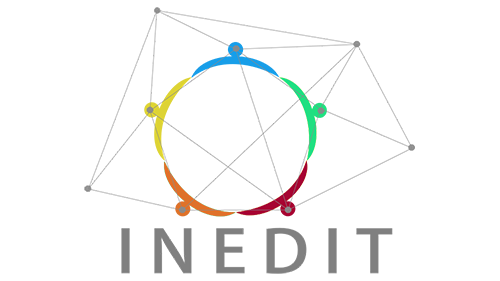CASE STUDY 3 – Recycled Plastic 3D Printing

Case study intent: The main goal is to validate the logistical and technical feasibility of recycled assets to be used in the Do-It-Together (DIT) approach, demonstrating the use of potential local sources of plastic wastes as secondary raw materials for furniture purposes using 3D printing and manual injection moulding.
The University of Lorraine use case aims to evaluate and demonstrate the possibility of acting at a local level in favour of the environment by using part of the plastic waste to manufacture, repair, and/or customize products maintaining a durable and responsible vision throughout their life cycle.
The technological evolution in plastic recycling is mainly focused on developments in additive manufacturing (3D printing) and plastic injection molding. This technological innovation will allow local designers and architects to integrate recycled standard parts sheets as sheets and bars, but also 3D printed complex objects in a prototype and final product.
These technical and logistical elements were implemented in a recycling pilot platform known locally as the ‘Green FabLab‘ at the city of Nancy, France.
The Green FabLab is implemented at a citizen third place called L’Octroi Nancy. It acts as a platform for deploying circular economy strategies through the recovery of used plastic, while involving the actors of its ecosystem (more details).
The technical development was based on an open design approach in order to be replicable to other countries.
It is important to focus on the initial state of the plastic waste, which is a factor to be considered in the evaluation of a complete recycling network, and the optimization of the collection carried on thanks to the creation of an Open-Source-Hardware Smart collector that allows identifying the weight inside the collectors in real-time. Furthermore, in terms of material control, it is essential the identification, variability/heterogeneity and refining of plastic waste for re-use.
The smart collector was deployed in a dozen of local establishments as a means of collecting plastic and raising awareness of the importance of recycling.
This experimentation led to the creation of a demonstration furniture unit thanks to the sharing of materials (plastics, wood, etc.), knowledge and know-how in collaboration with L’A.Paillette and Remise two start-ups of L’Octroi Nancy.
The impact generated by the implementation of this type of activity in a specific ecosystem has been evaluated throughout the project, allowing a social, economic and environmental interaction around the plastic problem, between the Green Fablab, local actors, and the ecosystem formed by the other three Open Manufacturing Demonstrators Facilities’ (OMDF) in the framework of INEDIT project.
Stakeholder
- Production site / FabLab
- Furniture manufacturer
- Designer
- Wood / filament supplier
- 3D printing technical experts
Tools / technologies involved
- Smart Collector
- Path planning software
- Fused granular fabrication
Preconditions
- Consumer needs
- Design specifications
- DIT ecosystem technologies
- DIT ecosystem stakeholders
Postconditions
- 3D printed piece of plastic
- Consumer satisfaction
